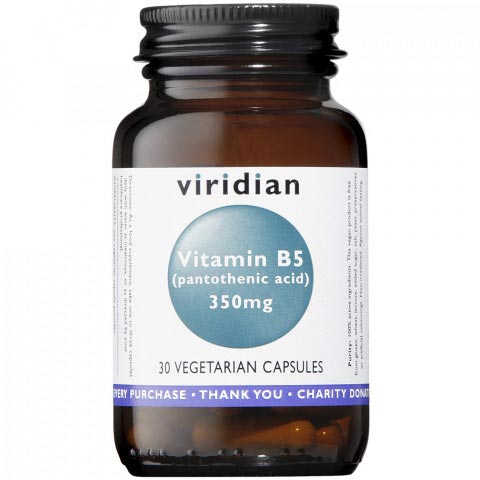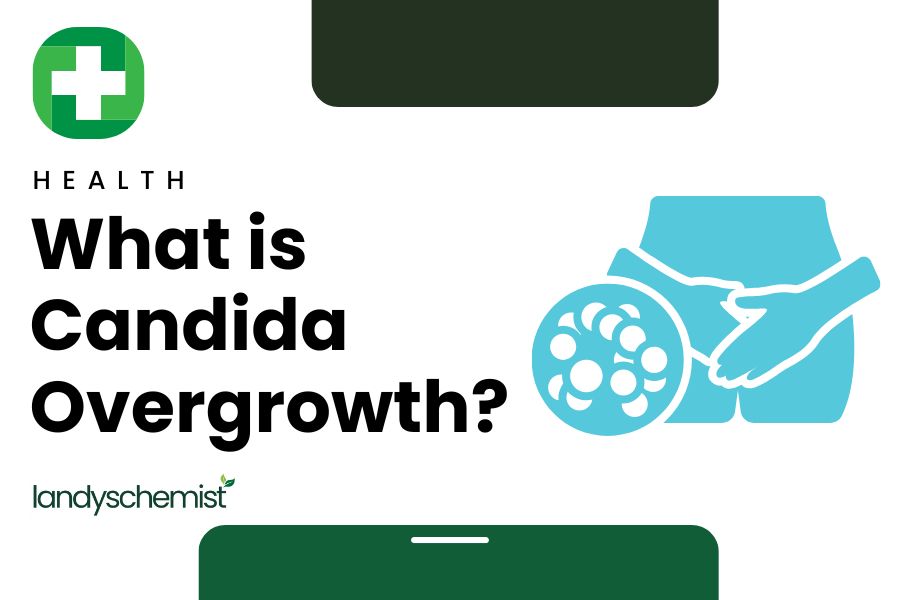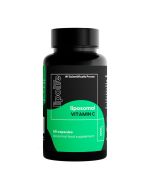
Essential Vitamins Glossary: The Facts
By Panasha Desai, Pharmacist (GPhC 2071387)
Vitamins are a key part of our essential make up, working hard to keep our bodies functioning at their optimum. From our hair and nails to our vision, immune system and metabolic rate, vitamins are fundamental to helping us stay happy and healthy.
With the numerous vitamin products on the market, and the complexities of each one, we often get asked by our customers why they should be taking certain vitamins, how they can improve their diets to include them or which supplements we recommend.
Below, we have put together a little break down of this information, with the hope that you can make informed decisions on your vitamin intake. We also provide our independent recommendations on the products we believe to be at the top of the market.
The Vitamins we consider in this article are:
VITAMIN A
What Is It?
Vitamin A (also called Retinol) plays an important role in your body.
This includes:
- Aiding your body’s immune system to fight illness and infection
- Improving your vision in low light
- Working as an antioxidant for healthy skin
Where Does It Come From?

Good sources of vitamin A come from the following foods:
- Dairy products
- Eggs
- Oily fish
- Fortified low-fat spreads
- Liver and liver products such as liver pâté – be careful not to have this more than once a week as it is a very high source of Vitamin A
Your body also changes substances containing beta-carotene into vitamin A. You can find this in:
- Yellow, red and green vegetables, such as spinach, carrots, sweet potatoes and red peppers
- Yellow fruit, such as mango, papaya and apricots
How Much Do I Need?
According to the Government, the amount of vitamin A adults aged 19 to 64 need is:
- 0.7mg a day for men
- 0.6mg a day for women
Your body can store vitamin A so you don’t need it every day.
Other info:
Make sure your average daily intake from food and supplements doesn't exceed 1.5mg as there has been research to suggest that an intake above this over many years can affect your bones - increasing the likelihood of a fracture in later age.
If you are pregnant high amounts of Vitamin A can damage your unborn baby - you should avoid supplements and food sources high in Vitamin A
Sources with high level vitamin A that should be taken moderately include liver or liver pâté (no more than once a week), multivitamins and other supplements, such as fish liver oil.
Those more at risk of osteoporosis (including post menopausal women and older men), should avoid having more than 1.5mg of vitamin A a day from food and supplements.
FURTHER INFORMATION:
Learn more about what vitamin A does in the body and how, as well as about deficiencies and risk of too much vitamin A, in: Vitamin A - Benefits and Risks
VITAMIN B
There is a wide variety of Vitamin B which play different roles in maintaining the health of your body:
Vitamin B1 - Thiamin:
What Is It?
B-1 (Thiamin) has several important functions. It works with other B-group vitamins to help break down and release energy from food and keep the nervous system healthy.
Where Does It Come From?

As well as supplements, you can get Thiamin in the following foods:
- Peas
- Fresh and dried fruit
- Eggs
- Whole Grain breads
- Some fortified breakfast cereals
- Liver
How Much Do I Need?
According to the Government, the amount of vitamin B1 adults aged 19 to 64 need is:
- 1mg a day for men
- 0.8mg a day for women
Your body cannot store Thiamin so you need to make sure it is part of your daily diet.
Other Info:
Diets low in whole foods may provide inadequate intake of thiamin. If you take other supplements, avoid taking more than 100mg a day.
Taking Thiamin can work as a natural insect repellent. It changes the scent of blood and makes it less appealing to mosquitoes.
LANDYS RECOMMENDS:
We recommend Solar Vitamin B1 capsules.
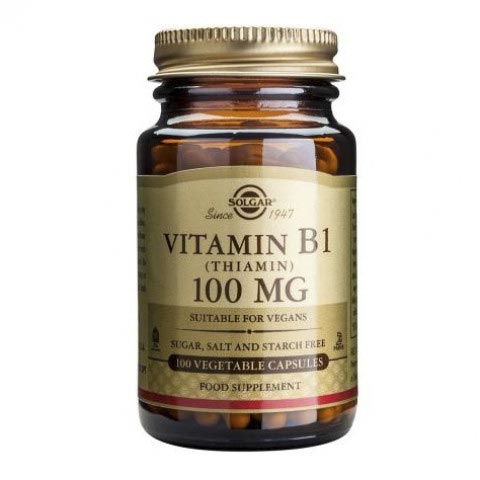
Vitamin B2 (Riboflavin)
What Is It?
Vitamin B-2 (Riboflavin) contributes to keeping the skin, eyes and nervous system healthy. It prevents tiredness and fatigue, sustains your skin, vision and red blood cells.
Where Does It Come From?
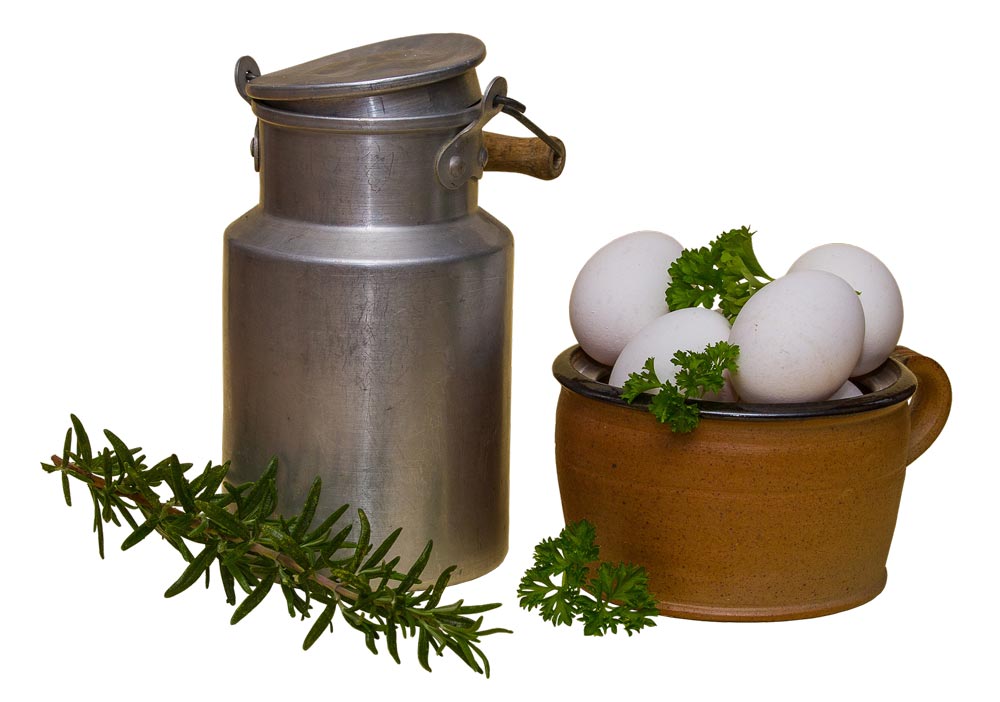
As well as supplements, you can find Riboflavin in the following foods:
- Milk
- Eggs
- Fortified breakfast cereals
- Rice
How Much Do I Need?
According to the Government, the amount of vitamin B2 adults aged 19 to 64 need is:
- 1.3mg a day for men
- 1.1mg a day for women
Your body cannot store Riboflavin so you need to make sure it is part of your daily diet.
Other Info:
If you take riboflavin supplements you should take no more than 40mg a day.
UV light can destroy riboflavin so keep food sources and supplements out of direct sunlight
LANDYS RECOMMENDS:
We recommend Lamberts Riboflavin capsules.
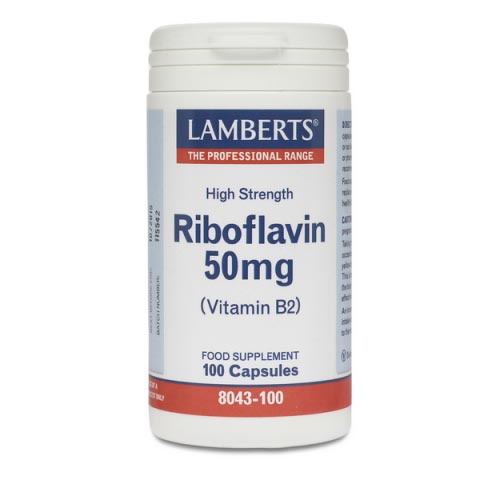
Vitamin B3 (Niacin)
What Is It?
Vitamin B-3 (Niacin) helps to release energy from food and keep the nervous system and skin healthy. Niacin is particularly important for the conversion of carbohydrates and proteins into energy as well as supporting cardiovascular health and blood flow.
Where Does It Come From?

There are two types of niacin: nicotinamide and nicotinic acid - they are both found in the following food substances:
- Meat
- Fish
- Wheat flour
- Eggs
- Milk
How Much Do I Need?
According to the Government, the amount of vitamin B3 adults aged 19 to 64 need is:
- 16.5mg a day for men
- 13.2mg a day for women
Your body cannot store Niacin so you need to make sure it is part of your daily diet.
Other info:
If you take niacin supplements you should take no more than 17mg of nicotinic acid or 500mg of nicotinamide a day.
LANDYS RECOMMENDS:
We recommend Solaray No Flush Niacin.
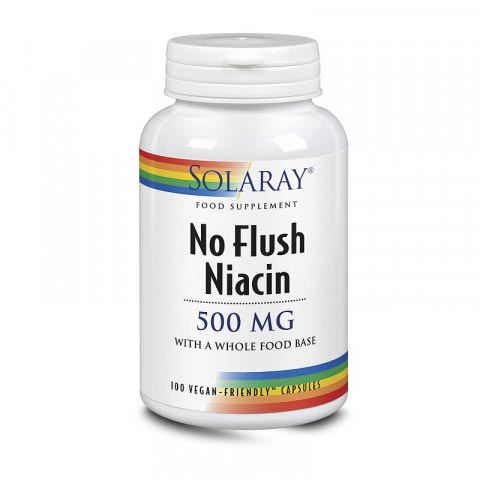
Vitamin B5 (Pantothenic Acid)
What Is It?
Vitamin B5 (Pantothenic acid) aids in the synthesis and metabolism of steroid hormones, vitamin D and some neurotransmitters. It also helps the body to release energy from food.
Where Does It Come From?
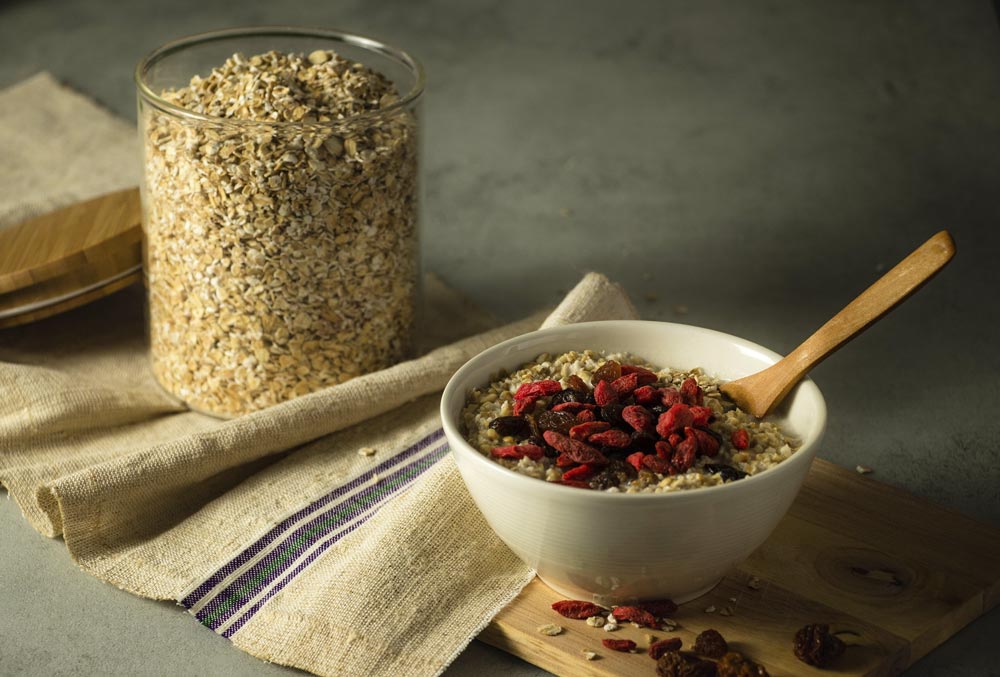
Pantothenic acid is contained in almost all meats and vegetables. Particularly good sources are found in:
- Chicken
- Beef
- Potatoes
- Porridge
- Tomatoes
- Kidney
- Eggs
- Broccoli
- Wholegrains such as brown rice and wholemeal bread
- Breakfast cereals (if they have been fortified with pantothenic acid)
How Much Do I Need?
You should be able to get all the pantothenic acid you need as part of a balanced diet. Your body cannot store it so it needs to be part of your daily intake.
Other info:
If you do take vitamin B5 supplements you should take no more than 200mg of pantothenic acid a day.
LANDYS RECOMMENDS:
We recommend Viridian Vitamin B5.
Vitamin B6 (Pyridoxine)
What Is It?
Vitamin B6 (Pyridoxine) enables the body to use and store energy from protein and carbohydrates in food. It also contributes to the healthy creation of haemoglobin - aiding red blood cells to carry oxygen around the body.
Where Does It Come From?
You can get Pyridoxine in a large variety of foods, those that are a particularly good source include:
- Pork
- Poultry
- Fish
- Bread
- Wholegrain cereals such as oatmeal, wheatgerm and brown rice
- Eggs
- Vegetables
- Soya beans
- Peanuts
- Milk
- Potatoes
- Some fortified breakfast cereals
How Much Do I Need?
According to the Government, the amount of vitamin B6 adults aged 19 to 64 need is:
- 1.4mg a day for men
- 1.2mg a day for women
Other info:
You shouldn’t take more than 200mg a day of Pyridoxine. Evidence suggests that doing so for a long period of time (several months) can cause peripheral neuropathy - a form of loss of sensation in the arms and legs.
LANDYS RECOMMENDS:
We recommend BioCare Vitasorb B6 liquid.
Vitamin B7 (Biotin)
What Is It?
Very small amounts of Vitamin B7 (Biotin) are needed for the metabolism of fat. It also helps to improve healthy skin, nails and hair, and is necessary for certain enzymes to work properly.
Where Does It Come From?
Biotin is made naturally by a bacteria that lives in your bowel. It is also found in food, though to a lesser extent than other water soluble vitamins., such as:
- Chicken
- Soy
- Walnuts
- Whole grains
- Legumes
How Much Do I Need?
Biotin is needed only in very small amounts.
Other info:
If you take B7 vitamin supplements it is recommended that you don’t take more than 5000mcg per day
LANDYS RECOMMENDS:
We recommend Solgar Biotin capsules.
Vitamin B9 (FOLACIN [FOLATE & FOLIC ACID])
What Is It?
Vitamin B9 (Folacin) has several important functions. It reduces the risk of central nervous system defects, such as spina bifida, in unborn babies and helps the body to create healthy red blood cells.
Folacin is known as Folate or Folic Acid in its man-made form.
Where Does It Come From?
Folate is found in many foods. This includes:
- Broccoli
- Brussels Sprouts
- Liver
- Leafy green vegetables, for example spinach and Kale
- Peas and chickpeas
- Breakfast cereals that are fortified with folic acid
How Much Do I Need?
According to the Government, the amount of folate adults aged 19 to 64 need is:
200 micrograms a day for men
200 micrograms a day for women
Other info:
Your body does not store folate in the body for a long time so you need to ensure that you make sure that you get the right intake of the vitamin through your diet or supplements.
Women seeking to get pregnant and in the first 12 weeks of pregnancy should aim for an intake of 400 micrograms of Folate per day. This is to help reduce the risk of birth defects to the central nervous system, such as spina bifida, in your unborn baby. Women with a history of spina bifida in their family, diabetes and taking anti epileptic medicines may need more - speak to your GP for advice.
If you are taking supplements you must ensure you do not exceed 1 milligram of folate per day as this can disguise the symptoms of Vitamin B12 deficiency which if untreated, eventually, can damage the nervous system. This is particularly relevant to older people as you are less capable of absorbing Vitamin B12 as you get older.
A lack of folate can cause anaemia .
LANDYS RECOMMENDS:
We recommend Solgar Folacin tablets.
VITAMIN B12
What Is It?
Vitamin B12 has several important functions and is involved in making red blood cells and keeping the nervous system healthy. It is also contributes to the release of energy from food and is essential in processing folate, or folic acid.
Where Does It Come From?
You can ensure that you get B12 in your diet by eating the following items:
- Meat
- Salmon
- Cod
- Milk
- Cheese
- Eggs
- Some fortified breakfast cereals
How Much Do I Need?
According to the Government, the amount of vitamin B12 adults aged 19 to 64 need is:
- 1.5 micrograms a day for men
- 1.5 micrograms a day for women
Other info:
A lack of vitamin B12 could lead to anaemia.
If you are a vegan or vegetarian you will need to consider taking supplements as there is little B12 found in vegetables, grains and fruit. It is generally believed that your body only absorbs 10 micrograms of a 500 microgram B12 supplement, so remember to factor this in when taking it.
If you are older than 50, your body finds it harder to absorb Vitamin B12 and as such it is generally recommended that adults of this age consider taking supplements and fortified cereals to get the required intake.
It is also recommended that pregnant and breastfeeding women get a higher intake of vitamin B12 (to prevent premature birth, low birth weight in newborn babies and to reduce the risk of developmental delay in infants.)
LANDYS RECOMMENDS:
We recommend Viridian HIGH TWELVE vegetarian capsules.
FURTHER INFORMATION:
You can read more about how B vitamins work as part of your diet and why they are so important in our article: 4 Signs You Need More B Vitamins In Your Diet
VITAMIN C
What Is It?
Vitamin C (ascorbic acid) is a water soluble vitamin and antioxidant. It helps to keep cells healthy and build your immune system; it maintains your skin, blood vessels, bones and cartilage and plays a role in helping your wounds heal .
Where Does It Come From?
You can find vitamin C in a wide range of fruit and vegetables, such as:
- Citrus fruits and juices such as oranges and grapefruit
- Tomatoes
- Kiwi
- Strawberries, blackcurrants, raspberries and blueberries
- Broccoli
- Brussels sprouts
- Potatoes
How Much Do I Need?
According to the Government, the amount of vitamin C adults aged 19 to 64 need is:
- 40 mg a day for men
- 40 mg a day for women
Other Info
Vitamin C can’t be stored in the body so you need to make sure that you have enough of it in your daily diet or supplemented each day.
A deficiency in vitamin C can cause Scurvy.
Taking too much vitamin C (more than 1,000mg a day) can cause diarrhoea, flatulence and stomach pain - these symptoms should disappear once reducing your intake and have no long term effects.
LANDYS RECOMMENDS:
We recommend NHP Vitamin C capsules.
FURTHER INFORMATION:
You can read more about the effects of vitamin C, specifically in serum from, in our post: What Is Vitamin C Serum And Why Should I Use It?
VITAMIN D
What Is It?
Vitamin D is a group of fat-soluble secosteroids that contribute to the regulation of calcium and phosphate in humans. The most important of these provide the nutrients needed to keep bones, teeth and muscles healthy.
Where Does It Come From?
We create Vitamin D from direct sunlight on the skin when we are outside. In the UK, we should be able to create enough Vitamin D to maintain strong bones, teeth and muscles from early April to the end of September. Between October and March, however, we don’t have enough exposure to sunshine to make enough vitamin D to remain healthy. We should therefore look to take supplements in Autumn/Winter/Spring.
Sunlight is our main source of Vitamin D, but it is also found in some foods:
- Oily fish – such as salmon, sardines, herring and mackerel
- red meat
- Liver
- egg yolks
- fortified foods – such as most fat spreads and some breakfast cereals
Another source of vitamin D is dietary supplements.
How Much Do I Need?
According to the Government, the amount of vitamin D adults need is:
- 10 micrograms (400iu) a day for men and women
Vitamin D is also important for the healthy development of children with 8.5 - 10 micrograms of Vitamin D a day recommended for babies up to the age of 1, and 10 micrograms a day for children of one year into adulthood. It is worth noting that Infant formula is fortified with Vitamin D, so babies that are formula fed won’t need to have a vitamin D supplement until they are receiving less than 500ml of formula a day.
Other info:
Vitamin D deficiency can lead to bone deformities such as rickets in children, and bone pain caused by a condition called osteomalacia in adults.
To avoid this, children should be given a Vitamin D supplement of 10 micrograms each day. As well as children, other vulnerable people need to ensure that they are getting sufficient vitamin D, such as pregnant women and breastfeeding mothers.
It is worth noting that, in the UK, our cow’s milk is not fortified as it is in some other countries, so this is not a good source of vitamin D.
Other people vulnerable to not enough Vitamin D:
- People that aren’t outside enough - if you are weak, housebound, work night shifts or in a care-home
- People that cover most of their skin when outside
- People with dark skin, which doesn’t absorb as much UV radiation, such as those from African, African-Caribbean and south Asian backgrounds
- People who avoid the sun because of previous skin cancers or skin conditions
You can also suffer long term from too much Vitamin D, so getting your dose right is paramount.
You can’t get too much vitamin D from sun exposure but taking too many vitamin D supplements over a long period of time can cause calcium to build up in the body (hypercalcaemia). This can weaken the bones and damage the kidneys and the heart. Be sure to stick to 10 micrograms a day when you take supplements. Of course, if your doctor has recommended otherwise, follow their advice.
You don’t need to expose your skin to too much sun to get the benefits of Vitamin D - about 20 to 30 minutes of exposure of forearms, hands or lower legs to sun without sun tan lotion three times a week if you have fair skin should suffice. People with darker skin will need longer.You also need to be careful not to burn your skin - it is really important to protect your skin with a screen or lotion before it starts turning red or burns.
Your body doesn't make too much vitamin D from sun exposure, but always remember to cover up or protect your skin if you're out in the sun for long periods to reduce the risk of skin damage and skin cancer.
LANDYS RECOMMENDS:
We recommend Viridian Liquid Vitamin D3.
FURTHER INFORMATION:
Finding it hard to determine between Vitamin D, Vitamin D2 and Vitamin D3? Landy’s explains all in its article: What’s The Difference Between Vitamin D2 and Vitamin D3?
VITAMIN E
What Is It?
Vitamin E helps build your immunity to illness and infections. It is also important in maintaining healthy skin and eyes
Where Does It Come From?
Vitamin E should be present in your daily diet, namely from:
- Plant oils – such as soya, corn and olive oil
- Nuts and seeds
- Wheatgerm – found in cereals and cereal products
How Much Do I Need?
According to the NHS the amount of vitamin E adults between the ages of 19 and 64 need is:
- 4 mg a day for men
- 3 mg a day for women
Other Info
Our bodies can store Vitamin E, so you don’t need it in your diet every day.
If you take vitamin E supplements, it is advised that you don’t take more than 540mg a day of vitamin E
LANDYS RECOMMENDS:
We recommend Terranova Vitamin E vegicaps.
FURTHER INFORMATION:
You can learn more about the power of vitamin E in your skincare routine in: Why Vitamin E Is Great For Your Skin
VITAMIN K
What Is It?
Vitamin K is essential in clotting the blood - helping wounds to heal properly. It is also thought to contribute to the health of our bones.
Where Does It Come From?
Vitamin K is found in our diet - notably from:
- Green leafy vegetables – such as broccoli and spinach
- Vegetable oils
- Cereal grains
Small sources of Vitamin K can also be found in meat and dairy products.
How Much Do I Need?
According to the NHS, adults should have approximately 1 microgram of vitamin K each day, for each kilogram of their body weight - so if you weigh 70kg, you would need 70 micrograms of vitamin K.
Other Info
Your body is able to store Vitamin K in the liver, so you don’t need it in your diet every day.
Whilst there is no evidence for the harm that may be caused as a result of taking too much Vitamin K, it is advised that you don’t take more than 1 milligram of Vitamin K per day.
LANDYS RECOMMENDS:
We recommend Viridian Vitamin K capsules.
FURTHER INFORMATION:
There has been some amazing research done into the power of vitamin K, which you can read all about in: How Vitamin K2 May Fight Cancer, Prevent Osteoporosis & Other Diseases
If you have a specific concern about any of the vitamins that we mention above, get in touch with us, or pop into your local pharmacy to discuss your specific symptoms and needs.
Disclaimer
The products offered are not intended to diagnose, treat, cure, or prevent any illness or disease, or to replace the advice of a medical professional. Results are not guaranteed and may vary from individual to individual.

